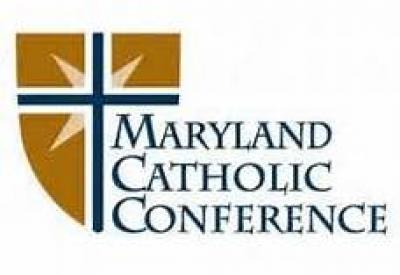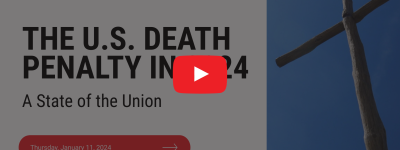
In 2009, Bishop Martin Holley, the Auxiliary Bishop of Washington, wrote a strong statement in support of Senate Bill 279 which would repeal Maryland's death penalty. Here is a portion of his statement:
"I trust our Catholic Church’s long-standing advocacy for death penalty repeal in Maryland, and our consistent advocacy for laws that respect all human life – even that of the convicted criminal – is well known to you. Our Church teaches that all human life is sacred and must be protected and defended from conception to natural death. It is a teaching which admits no exceptions – whether of a seriously deformed child in the womb, nor an elderly person suffering from grievous disease in its final stage, nor even a death-row inmate who has wrongfully and wantonly taken the life of another. It is my prayer that the repeated urgings of the Church, together with the urgings of so many other faith communities, citizens groups, and victims’ families, and together with the compelling findings that you now have before you from the Commission on Capital Punishment, will at last inspire you to take action this year to abolish Maryland’s death penalty.
I am honored to add my voice today in imploring you to take this action. I do so not only on behalf of the Maryland bishops, but also as a member of the U.S. Bishops’ Pro-Life Committee, as Chairman of their Subcommittee for African-American Catholics, and as a member of the Washington Archdiocese’s Prison Outreach Ministry. Through my work on behalf of the Church’s pro-life efforts, and as an African American, I feel keenly the harm that a culture of violence has wrought on our community, and recognize daily the dire need for a change in culture that can only be brought about through a genuine respect for all human life.
In our view as a faith community, arguments against the death penalty do not rest simply on questions regarding bias, deterrence, cost-effectiveness, and the possibility of error. The convincing evidence that other panels today will provide you on these various aspects of the Commission’s findings are undoubtedly critically important to your deliberations. But for us, the fundamental moral question remains: Are we permitted to deliberately take the life of another human being? The teachings of our Church tell us that when other punishment options that are sufficient to protect the public’s safety are available to government, we should not resort to the death penalty, not even in the case of one who takes the life of another human being and, by doing so, denies not only his own and his victim’s human dignity, but God’s dominion, as well. In the Church’s view, the human quest for justice never permits us to assume the absolute power over human life implicit in capital punishment."


